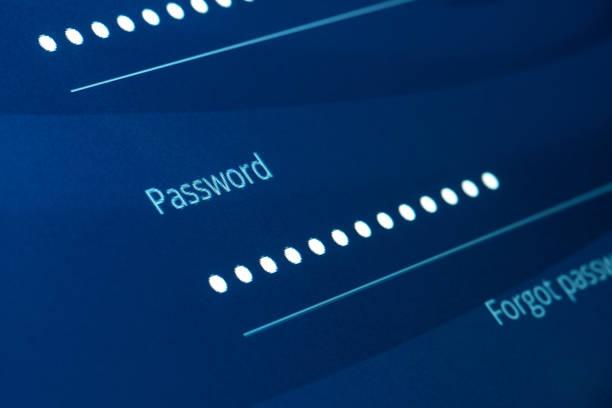The Shocking Reality : Hackers can crack 78% of the world’s most common passwords in under 1 second. Weak choices like “123456,” “password,” and “qwerty” dominate leaked databases, with millions of corporate and personal accounts compromised daily. Here’s how hackers crack passwords in 1 second—and how to stay safe.
We have a Free Password Generator Tool that is lightweight, web-based utility that allows users to create strong, secure, and random passwords instantly. This tool is fast, responsive, and easy to use. It’s designed to help individuals, developers, and businesses generate passwords that meet modern security standards, ensuring protection against cyber threats.
How Hackers Crack Passwords in Seconds
- Brute-Force Attacks
- Hackers use automated tools to bombard login fields with millions of guesses per second. For example, a 4-character lowercase password can be hacked instantly.
- Tools: High-end GPUs (like NVIDIA RTX 4090) or cloud-based systems amplify speed. A $1,599 GPU can crack an 8-character complex password in 7 years, but weak passwords take seconds.
- Dictionary & Hybrid Attacks
- Hackers test passwords against preloaded lists of common phrases, leaked credentials, and variations (e.g., “p@ssw0rd!”).
- AI Boost: AI tools now crack 51% of passwords in under a minute by predicting patterns.
- Credential Stuffing
- Reused passwords from past breaches (e.g., Netflix logins) let hackers “waltz into” work or banking accounts.
- Password Spraying
- Attackers use common passwords (like “welcome1”) across thousands of accounts to avoid detection.
2025’s Most Dangerous Passwords
| Password | Time to Crack |
|---|---|
| 123456 | <1 second |
| password | <1 second |
| qwerty123 | <1 second |
| 111111 | <1 second |
| secret | <1 second |
Why These Fail: Sequential numbers, keyboard patterns, and simple words are trivial for automated tools.
—————————–Recommendations; Please continue reading below——————————
 ASUS Chromebook C223 11.6″ HD Laptop Shop Now
ASUS Chromebook C223 11.6″ HD Laptop Shop Now
This Asus HD Laptop is an amazon’s choice for ‘chrome computer laptop’ is reviewed by 980+ reviewers that is available at only $249.99. It is ready for productivity and performance while being on the go or travelling, with speedy performance, robust security, and convenience for the user. This laptop has Lightweight 2.2 pound body and with thin and premium metallic finish for a sleek appearance having 11.6 inch HD 1366×768 Anti-Glare Display. The machine is powered by the Intel Celeron N3350 Processor (2M Cache, up to 2.4GHz) for fast and snappy performance including 4 GB DDR3 RAM; 32GB eMMC hard drive; No CD or DVD drive with it. Learn more about this product >>>

Latest Hacking Campaigns
- Astaroth Botnet Brute-Force Attacks
- A 2.8 million-device botnet is targeting VPNs, firewalls, and corporate networks. It bypasses 2FA by stealing session cookies in real-time.
- Impact: Compromised devices become part of the attack chain, fueling further breaches.
- Google ‘Perpetual Hack’ Phishing
- Hackers impersonate Google Ads to steal advertiser credentials, hijack accounts, and resell them on dark web forums. Compromised accounts fund malicious ads, creating an endless cycle.
- Password Manager Targeting
- 25% of malware now targets password managers (e.g., 1Password, LastPass). Attackers use memory scraping and cloud storage exploits to steal vaults.
How to Protect Yourself
- Ditch Short Passwords
- A 12-character mix of letters, numbers, and symbols takes 3+ centuries to crack. An 18-character passphrase (e.g., “Sunset-cola-Mouse!”) requires 350 billion years.
- Use a Password Manager
- Tools like Bitwarden (open-source) or 1Password generate and store unique passwords. Avoid reused credentials.
- Enable 2FA + Passkeys
- Google’s Advanced Protection or Microsoft Authenticator add critical layers. Passkeys (phishing-resistant) are replacing passwords.
- Audit & Update
- Check for breaches via Have I Been Pwned. Google Chrome’s new AI tool auto-changes compromised passwords.
FAQs
Q: Are password managers safe?
A: Yes, but hackers are targeting them. Use ones with zero-knowledge encryption (e.g., Bitwarden) and enable 2FA.
Q: Can AI crack any password?
A: AI cracks weak passwords faster but struggles with 18+ character passphrases.
Q: What’s the #1 mistake people make?
A: Reusing passwords. 40% of work/personal passwords are identical, enabling cross-account breaches.
The Future of Passwords
- AI vs. AI: Google and Microsoft are integrating AI to auto-generate and rotate passwords, countering hacker tools.
- Quantum Threats: New protocols like ML-KEM (used in ExpressVPN) aim to resist quantum computing attacks.
Act Now: Swap weak passwords for passphrases, enable 2FA, and monitor accounts. Your 1-second laziness could cost years of recovery.
Now loading...






